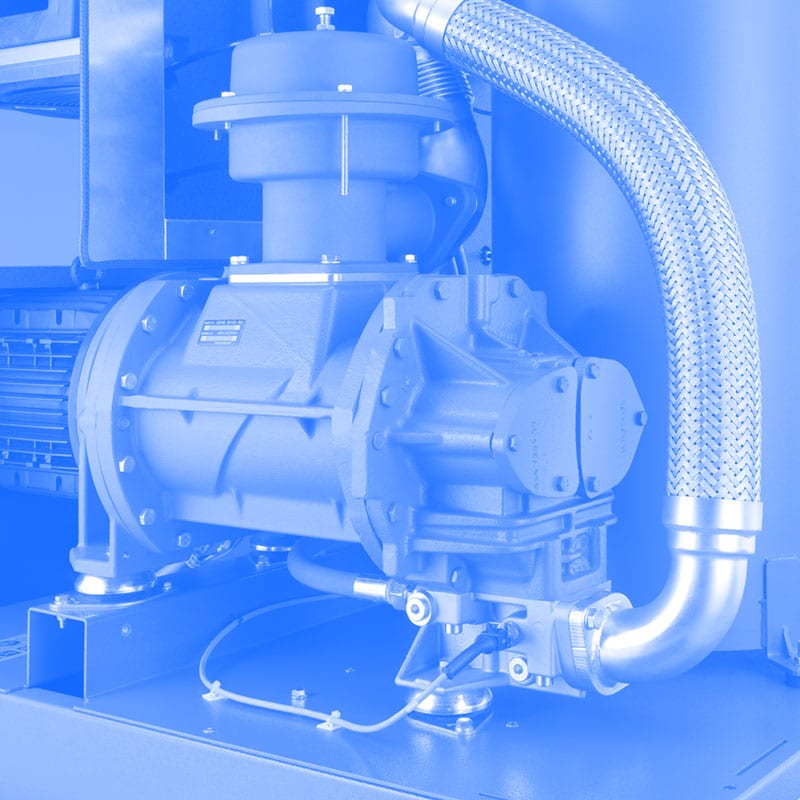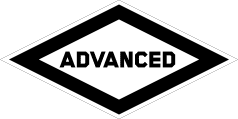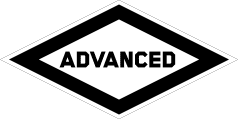MOTOR REWIND SALES AND SERVICE
At Advanced Air & Vacuum, we extend our expertise to specialize in comprehensive motor rewind and repair services. Recognized for our dedication to quality and reliability, we stand as industry leaders in servicing nearly every motor manufacturer, from AC and DC motors to universal and single-phase motors. Our commitment to excellence and customer satisfaction ensures that every motor rewinding project meets the highest standards of efficiency and performance.
In addition to our wealth of experience, Advanced Air & Vacuum is EASA AR100 accredited. This accreditation is an internationally recognized standard for electric motor service centers, which signifies that we have demonstrated a commitment to quality and excellence in our work. As an EASA AR100 accredited service center, we have undergone a rigorous auditing process to ensure that our facilities, equipment, and personnel meet the highest standards of professionalism and expertise. This combination of experience and accreditation makes Advanced Air & Vacuum the best choice for those in need of motor services.
AAV’s range of services for electric motors include:
| Vibration Analysis |
| Complete Repair of Servo Motors |
| Electric Motor Rewinds up to 750HP |
| Bearing Sales, Selection and Installation |
| VPI Windings available upon request |
| Class H Insulation & Inverter Duty Wire used in All Rewinds |
| Motor repair from Fractional HP to 750HP, 12 to 575 Volts |
| Resistivity, Hi-Pot, Megger©, Surge Test & Electrical Diagnostic Testing |
Signs you May Need a Motor Rewind:
If you have been informed that your electric motor requires rewinding, it means that the coils have been damaged, shorted, or grounded in some way. There are numerous underlying issues that lead to motor failures, which usually manifest themselves as insulation failures or grounded/shorted coils. Insulation failures may occur in several forms, such as shorted turn-to-turn or phase-to-phase windings, coil-to-coil, or grounding at the slot’s edge. These problems may be caused by contamination, abrasion, voltage surges, the machine’s age, or vibration. Thermal deterioration is another common cause of motor insulation failures, resulting from poor connections in the motor terminal, high currents in the stator due to a locked rotor, excessive load demands that surpass the motor’s rating, or excessive reversals and starts.
Some signs that a motor may need to be rewound include:
- The motor is making unusual noises or vibrations
- The motor is overheating
- The motor is drawing more current than usual
- The motor is producing less power than it should be
- The motor is failing to start or is starting slowly
- The motor is emitting a burning smell or smoke
If any of these signs are present, it is important to have the motor inspected by one of our professional motor rewind technicians to determine if rewinding is necessary.
Common Motor Issues
Numerous underlying issues lead to motor failures, from short circuits to insulation breakdowns, we tackle all causes of winding failures, using high-quality new wire and insulation resistance techniques to restore efficiency. Here are common issues motors face:
Insulation Failures
Insulation failures may occur in several forms, such as shorted turn-to-turn or phase-to-phase windings, coil-to-coil, or grounding at the slot’s edge. These problems may be caused by contamination, abrasion, voltage surges, the machine’s age, or vibration.
Thermal Degradation
Thermal degradation is another cause of motor failures, resulting from poor connections in the motor terminal, causing high currents in the stator due to a locked rotor which results in excessive load demands that surpass the motor’s rating, or excessive reversals and starts, which will cause the material to overheat and fail.
Mechanical Wear
Issues, like damaged motor coils or worn bearings, can severely impact motor function. Our repair services include everything from rewinding to complete rebuilds, ensuring your motor runs smoothly.
Electrical Problems
Faulty windings, phase issues, and core damage can all lead to reduced motor efficiency. Our technicians utilize the best practices in the industry to ensure a successful rewind every time.

The Motor Rewind Process
- Fill out a form or call:
The first step is simply reaching out to us. You can either fill out a form here or give us a call. - Diagnosis:
Upon receiving your request, our team of professional technicians will first assess the condition of your motor, leveraging in-depth knowledge of the leading brands, they can pinpoint the issue swiftly and accurately. - Repair:
After the problem is diagnosed, we employ a meticulous rewinding process. Our goal is to enhance motor performance, paying close attention to the stator core, insulation, and overall motor design, leaving you with a motor that feels and performs like it's brand new. - Leave a Review:
Please leave a review to help us improve our operations so we can better suit your needs.

Why Choose Advanced Air & Vacuum for Your Motor Rewinding Needs
When it comes to motor rewinding, Advanced Air & Vacuum stands out as the premier choice for businesses in Southern California, Arizona, and Mexico. With years of experience and unmatched expertise in both air compressor repairs and motor rewinding, our team brings a depth of knowledge that ensures exceptional service. Our EASA-certified technicians are extensively trained to handle a wide range of motor issues, guaranteeing top-notch repairs and rewinds. We prioritize prompt service, recognizing the urgency of motor problems for your operations, and we work diligently to minimize downtime, aiming to return your motor to top condition as quickly as possible.
We also offer comprehensive motor solutions, including new motor sales, preventative maintenance, and consultation services, to ensure your equipment supports your business’s success now and in the future. Trust Advanced Air & Vacuum to maintain your motors’ efficiency and reliability, just as you’ve trusted us with your air systems. Contact us for services that propel your operations forward with unwavering reliability and performance.
FAQ's
- What is a motor rewind? → Motor rewinding is a process of replacing the copper wire coils and insulation inside an electric motor’s stator or rotor. This process is typically done to restore the motor’s functionality after it has experienced damage or wear.
- When is Motor Rewinding necessary? → Motor rewinding is necessary when an electric motor’s coils or insulation become damaged, worn, or fail. This can result in decreased performance, increased energy consumption, or complete motor failure. Rewinding the motor can restore its performance and functionality and is often a more cost-effective solution than replacing the entire motor.
- How long does motor rewinding take? → The time required for motor rewinding can vary depending on the size and complexity of the motor, as well as the extent of the damage. Typically, though, the process can take anywhere from a few days to several weeks to complete. One of our professional motor rewind technicians can provide you a more accurate estimation after they have assessed the condition of the motor.
- Can any type of motor be rewound? → Most types of electric motors can be rewound, including AC motors, DC motors, and servo motors. However, the rewinding process can be more complex for some types of motors, such as those with multiple winding layers or specialized insulation requirements. It is important to consult with a professional motor rewinding service provider to determine if a specific motor can be rewound.
- Is it better to rewind a motor or replace it with a brand new motor? → Whether it is better to rewind a motor or replace it depends on several factors, including the extent of the damage, the age of the motor, and the cost of a replacement motor. In some cases, rewinding a motor can be a cost-effective way to extend its lifespan and restore its functionality. That being said though, if the motor is significantly damaged or outdated, it may be more cost-effective to replace it with a newer, more efficient model. One of our professional motor service providers can provide guidance on the best course of action for your specific motor.
